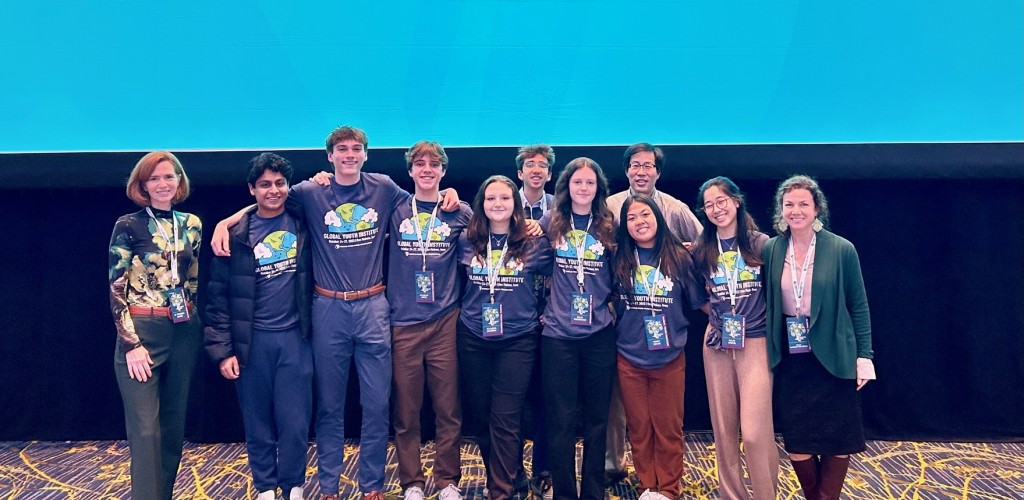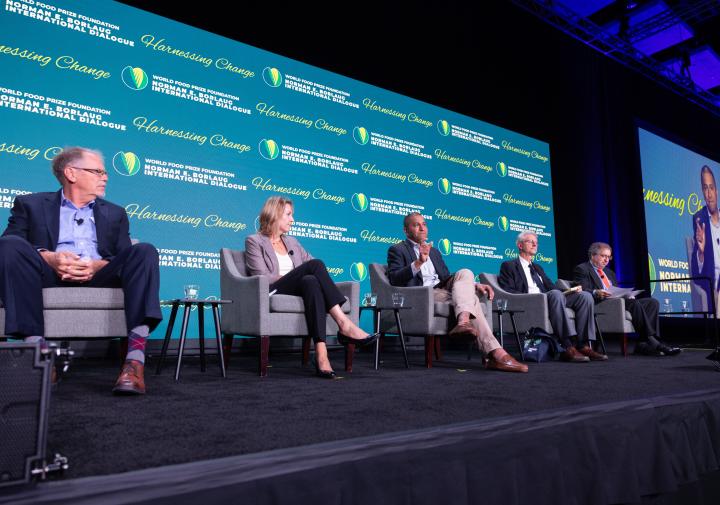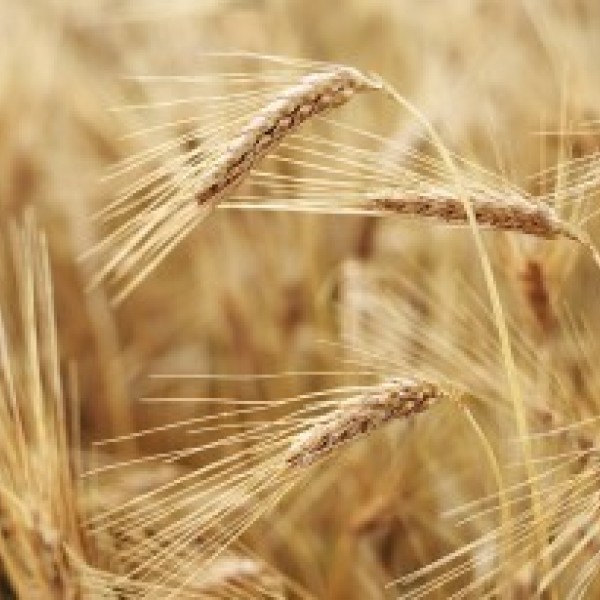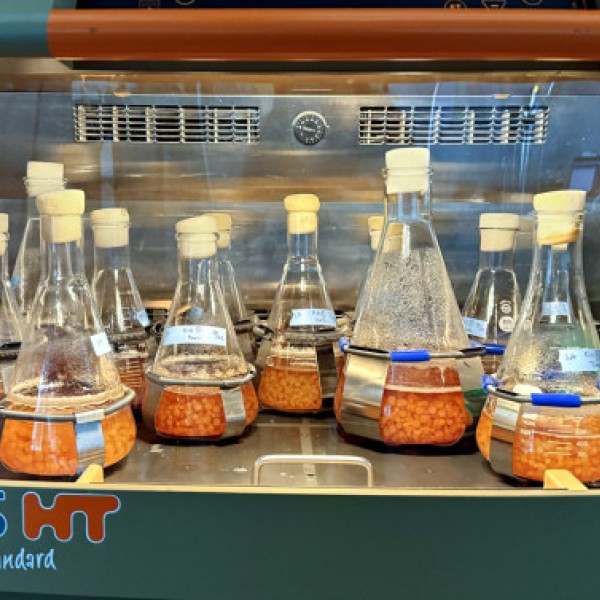Hosted by the World Food Prize Foundation in Des Moines, Iowa, global development professionals and foreign governments gathered for bilateral meetings and main stage sessions. Conversations focused on conflict resilience in the food system, women’s empowerment, and private-public partnerships in climate change.
The dialogues provide opportunities for bilateral agreements and program announcements, like the on-site announcement by USAID of additional Feed the Future Innovation Labs, including the Climate Resilient Cereals Innovation Lab that will partner with the Cornell-based Innovation Lab for Crop Improvement.
Amidst this event, Cornell representatives took to the global stage, including Bram Goverts, A.D. White Visiting Professor and Deputy General of CIMMYT, Dr. Ronnie Coffman, vice-chair of the Borlaug Global Rust Initiative and emeritus professor in the School of Integrative Plant Science, and Greg Jaffe, Senior Advisor to Secretary Vilsack and former visiting professor. They shared insights on the state of the food system alongside foreign governments.
A common phrase heard in food politics is food security is national security, a takeaway from global leaders who lead nations affected by conflict. For many, securing the future means developing those leaders that come next.
Hosted by the Department of Global Development, seven high school students who demonstrated outstanding performance at the New York Youth Institute in March 2023 were chosen to represent New York as youth delegates at the Global Youth Institute, in conjunction with the Borlaug Dialogue. These seven high school students presented their research and innovative food system solutions alongside numerous other exceptional student delegates from across the nation and internationally.
Among the chaperones at the event, Polly Endreny Holmberg, state coordinator of the New York Youth Institute, enjoys watching students grow into thought leaders. “Participating in the Global Youth Institute and other World Food Prize Foundation programs has an indelible impact on high school students," said Holmberg. "The experience helps shape them into global citizens and thoughtful leaders, influencing how they see the world and their role in addressing critical issues.”
Some notable experiences for youth participants included sharing lunch with the Presidents of Kosovo and Ethiopia and expressing their views to top State Department officials.







